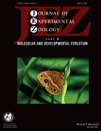
JOURNAL OF EXPERIMENTAL ZOOLOGY PART B-MOLECULAR AND DEVELOPMENTAL EVOLUTION
Scope & Guideline
Championing research that shapes the future of zoological studies.
Introduction
Aims and Scopes
- Molecular Mechanisms of Development:
Research exploring the molecular pathways and genetic factors that govern the development of various organisms, often highlighting model species to understand broader evolutionary principles. - Evolutionary Developmental Biology (Evo-Devo):
Studies that integrate evolutionary and developmental biology to understand how developmental processes influence evolutionary changes and vice versa. - Comparative Genomics and Transcriptomics:
Investigation of gene expression patterns and genomic variations across species to uncover evolutionary relationships and functional adaptations. - Regeneration and Developmental Plasticity:
Exploration of the mechanisms behind regeneration in various taxa, emphasizing the evolutionary significance of regenerative capabilities. - Environmental Influences on Development:
Research examining how environmental factors affect developmental processes and evolutionary outcomes, including studies on phenotypic plasticity. - Animal Models in Biomedical Research:
Utilization of diverse animal models to address questions in developmental biology and evolutionary processes, with implications for human health and biology.
Trending and Emerging
- Integration of Transcriptomics and Evolutionary Studies:
There is an increasing trend towards using transcriptomic analyses to understand evolutionary adaptations, particularly in response to environmental pressures and developmental changes. - Focus on Regeneration Mechanisms:
Research on regeneration, particularly in non-traditional models, has gained traction, emphasizing the evolutionary implications of regenerative abilities across different taxa. - Investigation of Epigenetic Factors:
Emerging studies are focusing on the role of epigenetics in evolution and development, exploring how epigenetic modifications contribute to phenotypic variation and adaptability. - Applications of Advanced Imaging Techniques:
The use of cutting-edge imaging technologies, such as micro-CT and high-content imaging, is becoming more prevalent, allowing for detailed analyses of developmental processes and structures. - Environmental and Ecological Influences on Development:
Research increasingly emphasizes how ecological factors influence developmental pathways and evolutionary strategies, reflecting a more holistic view of organism-environment interactions.
Declining or Waning
- Domestication Studies:
Although domestication remains a relevant topic, the frequency of papers specifically addressing the evolutionary and developmental aspects of domesticated species has decreased, possibly due to a shift toward more general evolutionary mechanisms. - Traditional Morphological Studies:
Papers focusing solely on morphological comparisons without integrating molecular or genetic insights have become less common, indicating a trend toward more interdisciplinary approaches. - Mechanistic Studies of Classical Genetics:
Research that primarily emphasizes classical genetic mechanisms without the incorporation of modern genomic techniques appears to be waning, as the field increasingly favors integrative methodologies. - Solely Descriptive Studies of Development:
The journal has seen fewer purely descriptive studies of developmental processes, reflecting a trend towards hypothesis-driven research that connects development to evolutionary outcomes.
Similar Journals

EVOLUTION & DEVELOPMENT
Illuminating the Interplay Between Evolution and Development.EVOLUTION & DEVELOPMENT is a prestigious academic journal published by WILEY, focusing on the intricate interplay between evolutionary and developmental processes. With an ISSN of 1520-541X and an E-ISSN of 1525-142X, this journal has established itself as a leading source of scholarly articles since its inception in 1999. It enjoys a Q2 ranking in Developmental Biology and a remarkable Q1 ranking in Ecology, Evolution, Behavior and Systematics, positioning it among the top-tier journals in these fields, as evidenced by its Scopus rankings, notably the 26th percentile in Developmental Biology. Researchers and practitioners benefit from high-quality peer-reviewed articles that push the boundaries of knowledge and foster interdisciplinary collaboration. While open access options are not currently available, the journal's robust visibility and impact factor underscore its importance in advancing understanding within the biological sciences. The editorial objective of EVOLUTION & DEVELOPMENT is to bridge the gap between evolution and development, integrating findings that elucidate the paths of organismal change. The journal is a must-read for anyone dedicated to exploring the complexities of life sciences, making it an invaluable resource for researchers, professionals, and students alike.
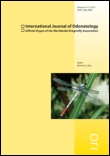
INTERNATIONAL JOURNAL OF ODONATOLOGY
Unraveling the Mysteries of Insect InteractionsINTERNATIONAL JOURNAL OF ODONATOLOGY, published by Wachholtz Verlag GmbH, is a vital resource for researchers and professionals in the fields of Ecology, Evolution, Behavior, and Insect Science. Established in 1998, this journal provides a platform for the dissemination of innovative research pertaining to odonatology, encompassing the ecological and biological interactions of dragonflies and damselflies. With its focus on advancing knowledge within these scientific disciplines, the journal holds a commendable Q3 ranking in Ecology, Evolution, Behavior and Systematics and a Q2 ranking in Insect Science for 2023, reflecting its significance in academic circles. Although it operates without open access, its articles are accessible through institutional subscriptions, allowing for wide dissemination among scholars and practitioners. The journal's commitment to publishing high-quality, peer-reviewed research makes it an authoritative source of information that enriches the study of odonates and their broader ecological contexts. For inquiries, the journal's editorial team can be reached at C/O Fleet7, Fleethorn 7, Kiel 24103, Germany.
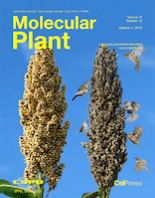
Molecular Plant
Transforming plant science with impactful research.Molecular Plant, published by CELL PRESS, is a premier journal dedicated to advancing the field of molecular biology and plant science. With an impressive impact factor reflecting its rigorous peer-review process and the high quality of its published research, this journal has achieved a remarkable Q1 ranking in both Molecular Biology and Plant Science categories as of 2023. Its Scopus rankings place it within the top echelons of its field, holding 2nd place in Agricultural and Biological Sciences - Plant Science, showcasing its vital role in disseminating impactful research. The journal covers a broad range of topics, including but not limited to, plant genetics, molecular interactions, and biotechnological advances. Research published in Molecular Plant has the potential to significantly influence agricultural practices and biotechnological applications, making it an essential resource for researchers, professionals, and students eager to stay at the forefront of plant research. Access options for the journal are tailored to accommodate a wide audience, facilitating engagement with cutting-edge findings and breakthroughs. As the field of plant science continues to evolve, Molecular Plant remains integral to fostering innovation and collaboration within the scientific community.
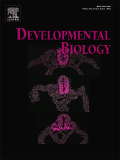
DEVELOPMENTAL BIOLOGY
Exploring Cellular Journeys in DevelopmentDEVELOPMENTAL BIOLOGY, published by Academic Press Inc., Elsevier Science, stands as a pivotal journal in the fields of cell biology, developmental biology, and molecular biology since its inception in 1959. Renowned for its rigorous peer-review process, this journal serves as a platform for publishing cutting-edge research, reviews, and insights that drive forward our understanding of developmental processes at the cellular and molecular levels. With an impressive track record, it is classified in the Q2 quartile across multiple categories, reflecting its significant impact and relevance in academia and research communities. Although the journal does not provide Open Access options, it remains accessible via numerous academic databases, ensuring a wide reach for researchers, professionals, and students alike. With a commitment to advancing the field, DEVELOPMENTAL BIOLOGY continues to be essential reading for those looking to stay at the forefront of developmental research and its applications.
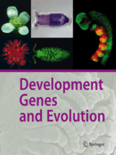
DEVELOPMENT GENES AND EVOLUTION
Pioneering Research at the Intersection of Genes and Development.DEVELOPMENT GENES AND EVOLUTION is a prominent academic journal published by Springer, dedicated to advancing the fields of developmental biology and genetics. With an ISSN of 0949-944X and an E-ISSN of 1432-041X, this journal plays a crucial role in disseminating high-quality research that explores the genetic underpinnings of developmental processes across various organisms. Located in the United States, the journal has maintained a strong international presence with a significant impact factor, reflecting its importance in the scientific community. It currently holds a Q3 ranking in both developmental biology and genetics, according to the latest 2023 category quartiles, indicating a solid standing among peers. With a convergence of insights from 1996 to 2024, the journal publishes original articles, reviews, and research notes that attract a diverse readership of researchers, professionals, and students. Access options include traditional subscription models and open access, ensuring that vital research is available to a broad audience. By fostering discussions on the evolution of developmental mechanisms, DEVELOPMENT GENES AND EVOLUTION continues to be an essential resource for those interested in understanding the intricate interplay between genetics and development.

Annual Review of Cell and Developmental Biology
Connecting Researchers to the Latest in Cell and Developmental BiologyThe Annual Review of Cell and Developmental Biology, published by Annual Reviews, stands as a premier journal in the fields of cell biology and developmental biology. Established in 1995, this influential journal has continuously provided comprehensive and critical reviews that synthesize the latest findings in these vibrant research areas, catering to the interests of researchers, professionals, and students alike. With an impressive impact factor, the journal ranks in the top quartile (Q1) for both Cell Biology and Developmental Biology, boasting remarkable Scopus rankings—#1 in Developmental Biology and #22 in Cell Biology. This emphasizes its significance and authority within the academic community. Although the journal does not operate under an open-access model, it remains a crucial resource for those seeking to stay at the forefront of scientific discoveries and theoretical advancements. The Annual Review of Cell and Developmental Biology continues to solidify its status as an essential platform for sharing knowledge and stimulating scientific inquiry.

INTERNATIONAL JOURNAL OF DEVELOPMENTAL BIOLOGY
Innovating the Future of EmbryologyThe International Journal of Developmental Biology, published by the University of Basque Country UPV-EHU Press, has been a pivotal resource in the field of developmental biology since its inception in 1989. With an ISSN of 0214-6282 and an E-ISSN of 1696-3547, this journal serves as a platform for groundbreaking research and exploration within the realms of embryology and developmental biology. Although currently classified in the Q4 category for Developmental Biology and Q3 in Embryology as of 2023, the journal continues to provide vital insights that influence contemporary scientific understanding and practices. It ranks 14th out of 21 in the field of Embryology and holds a 35th percentile ranking in this specialized domain, emphasizing its emerging relevance in the academic community. Researchers, professionals, and students alike are encouraged to utilize the journal’s content to enrich their knowledge and drive innovation within developmental sciences. With an eye towards future developments, the journal anticipates continued evolution through the years, maintaining its commitment to high-quality, impactful research.

Annual Review of Genetics
Connecting Past Discoveries with Future Innovations in Genetics.The Annual Review of Genetics is a premier academic journal dedicated to advancing the field of genetics through critical, comprehensive reviews that synthesize current research and highlight future directions. Published by Annual Reviews, this esteemed journal boasts an impressive impact factor, ranking in the Q1 category for Genetics, and holds a distinguished position as 14th out of 347 journals in the Scopus ranking for Genetics, placing it in the 96th percentile among its peers. With its convergence of knowledge from 1970 to 2023, the journal serves as an essential resource for researchers, professionals, and students alike, facilitating a deeper understanding of genetic principles and their applications. Although the journal is not open access, it remains a vital platform for disseminating high-quality, peer-reviewed content that shapes the conversation in genetics, making it a must-read for those seeking to stay at the forefront of this dynamic field.
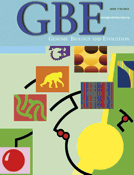
Genome Biology and Evolution
Fostering Collaboration in Evolutionary ScienceGenome Biology and Evolution, published by Oxford University Press, is a leading open-access journal that has been instrumental in advancing research in the fields of genetics and evolutionary biology since its inception in 2009. With an impressive Q1 ranking in both Ecology, Evolution, Behavior and Systematics and Genetics in 2023, the journal is recognized for its high-quality publications that contribute significantly to the understanding of genomic processes across diverse organisms. As part of its commitment to disseminating impactful research, it is dedicated to fostering interdisciplinary collaboration among scientists and providing a platform for innovative findings. Researchers, professionals, and students alike are encouraged to explore the wealth of knowledge within its pages, contributing to ongoing discussions that shape our understanding of evolutionary mechanisms and genomic data interpretation. With its robust access options and a strong commitment to wide dissemination of research, Genome Biology and Evolution remains an essential resource for anyone engaged in the life sciences.

Neural Development
Elevating Understanding of Neural Processes WorldwideNeural Development, published by BMC, is a premier open access journal dedicated to advancing the field of Developmental Neuroscience. Established in 2006, this journal continues to foster high-caliber research on the cellular and molecular mechanisms underlying neural development, contributing significantly to our understanding of brain structure and function. With a commendable Q1 ranking in the 2023 category of Developmental Neuroscience and a notable position as the 8th out of 37 journals in the field on Scopus, it is recognized for its rigorous peer-review process and impactful publications. Researchers, professionals, and students benefit from the widespread accessibility of its content in an evolving landscape of neuroscience studies. As an open-access journal, Neural Development ensures that groundbreaking discoveries are available to a global audience, facilitating collaboration and innovation in the exploration of neural mechanisms. With its strong commitment to quality and relevance, this journal remains at the forefront of developmental neuroscience research.